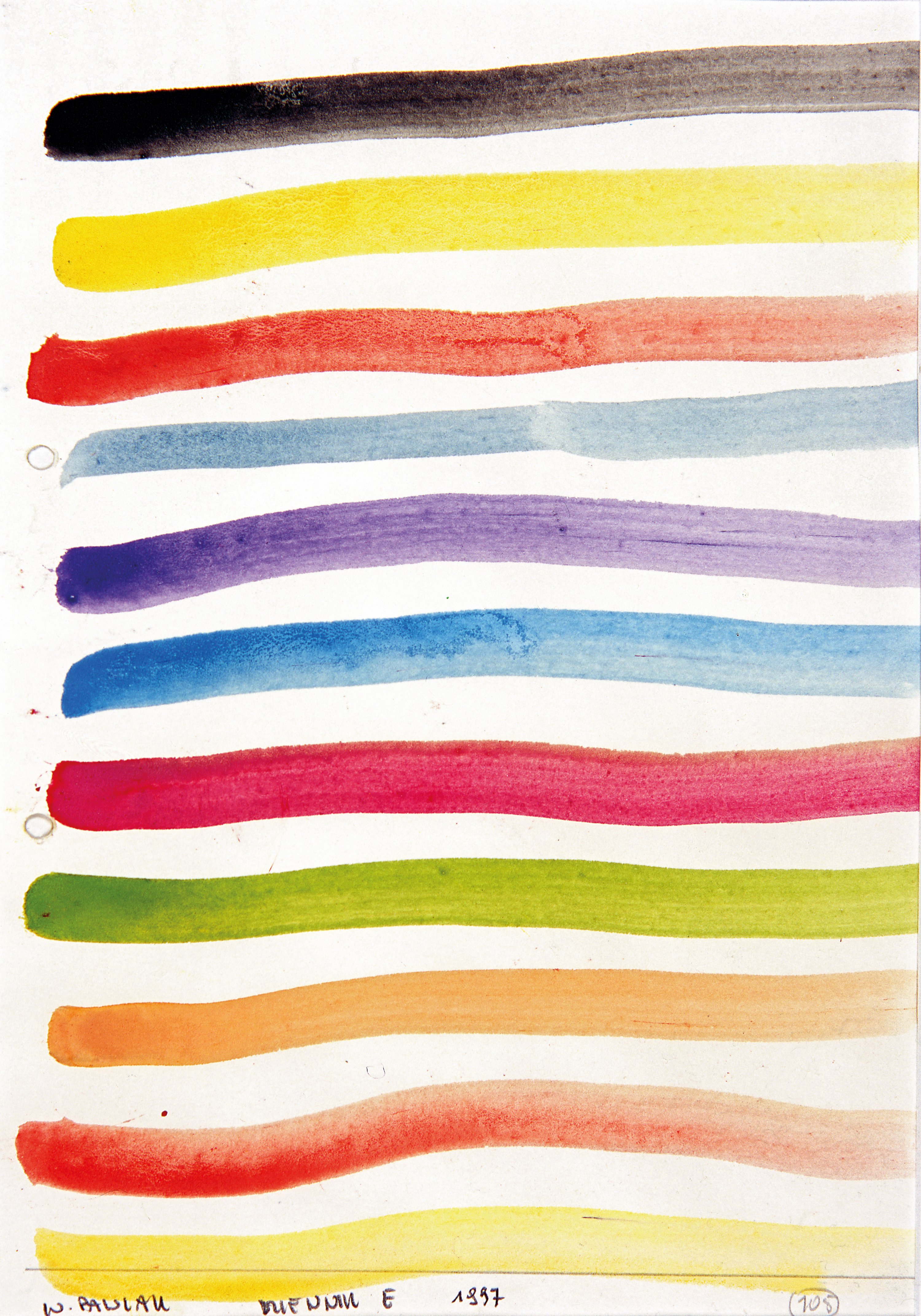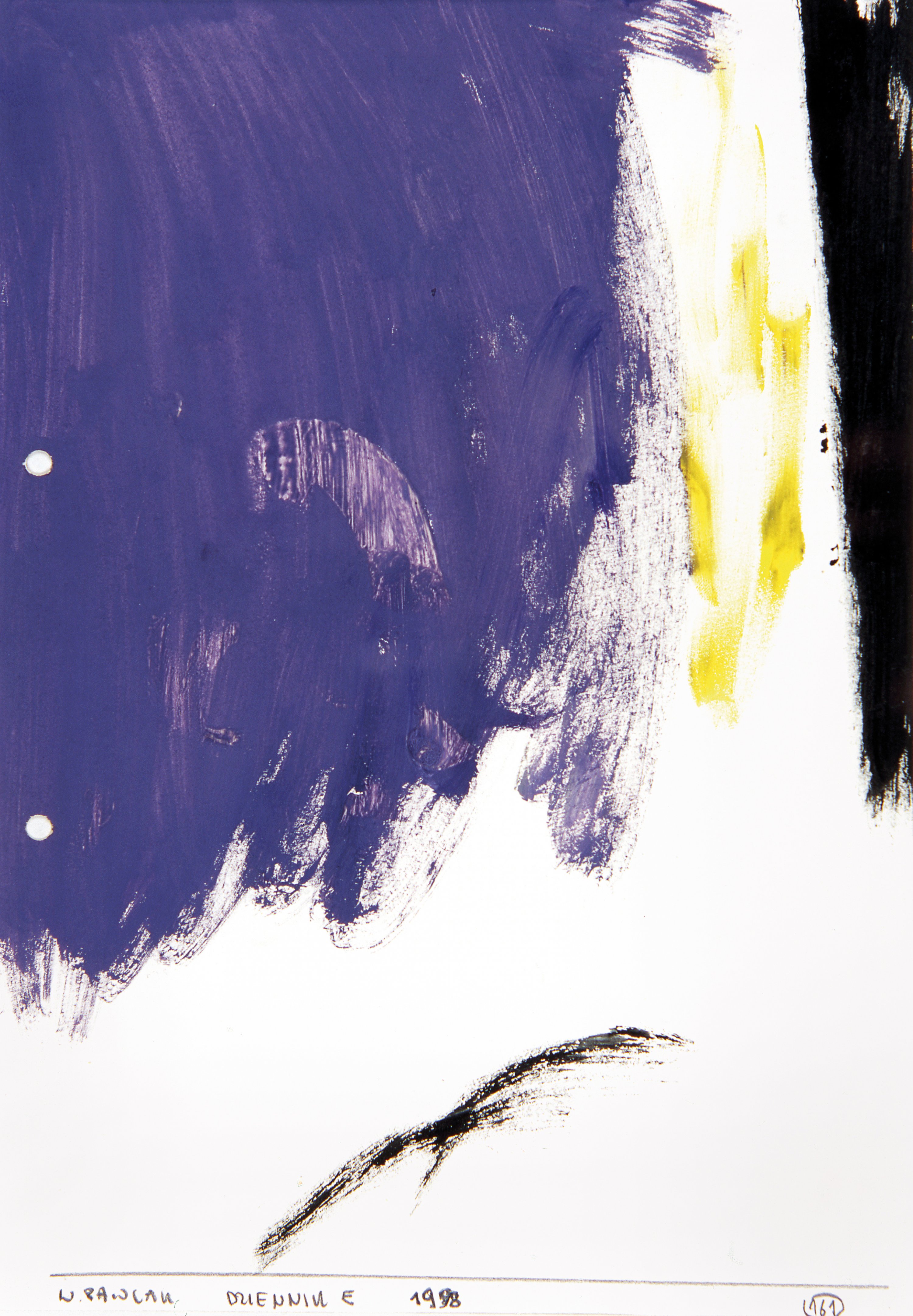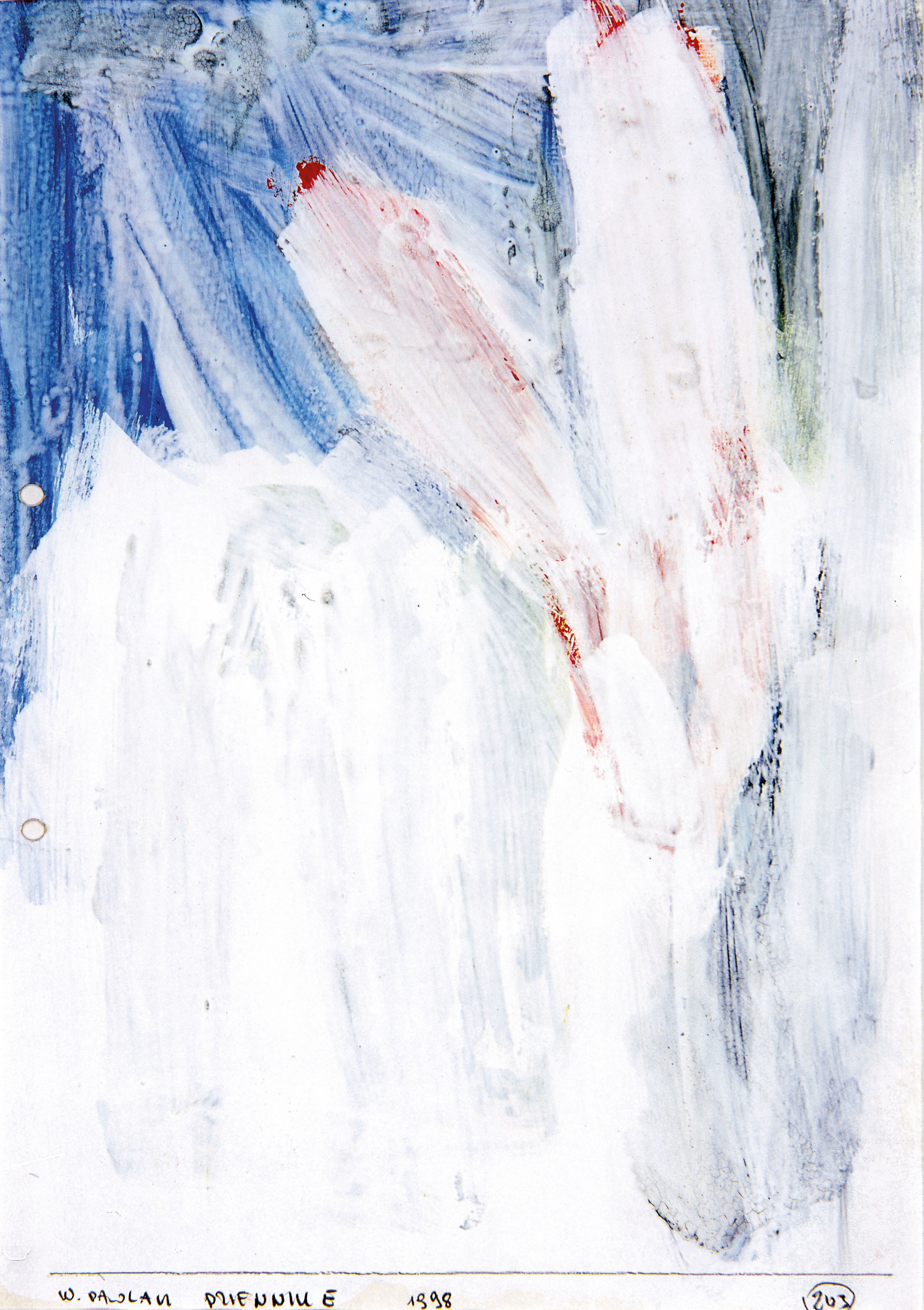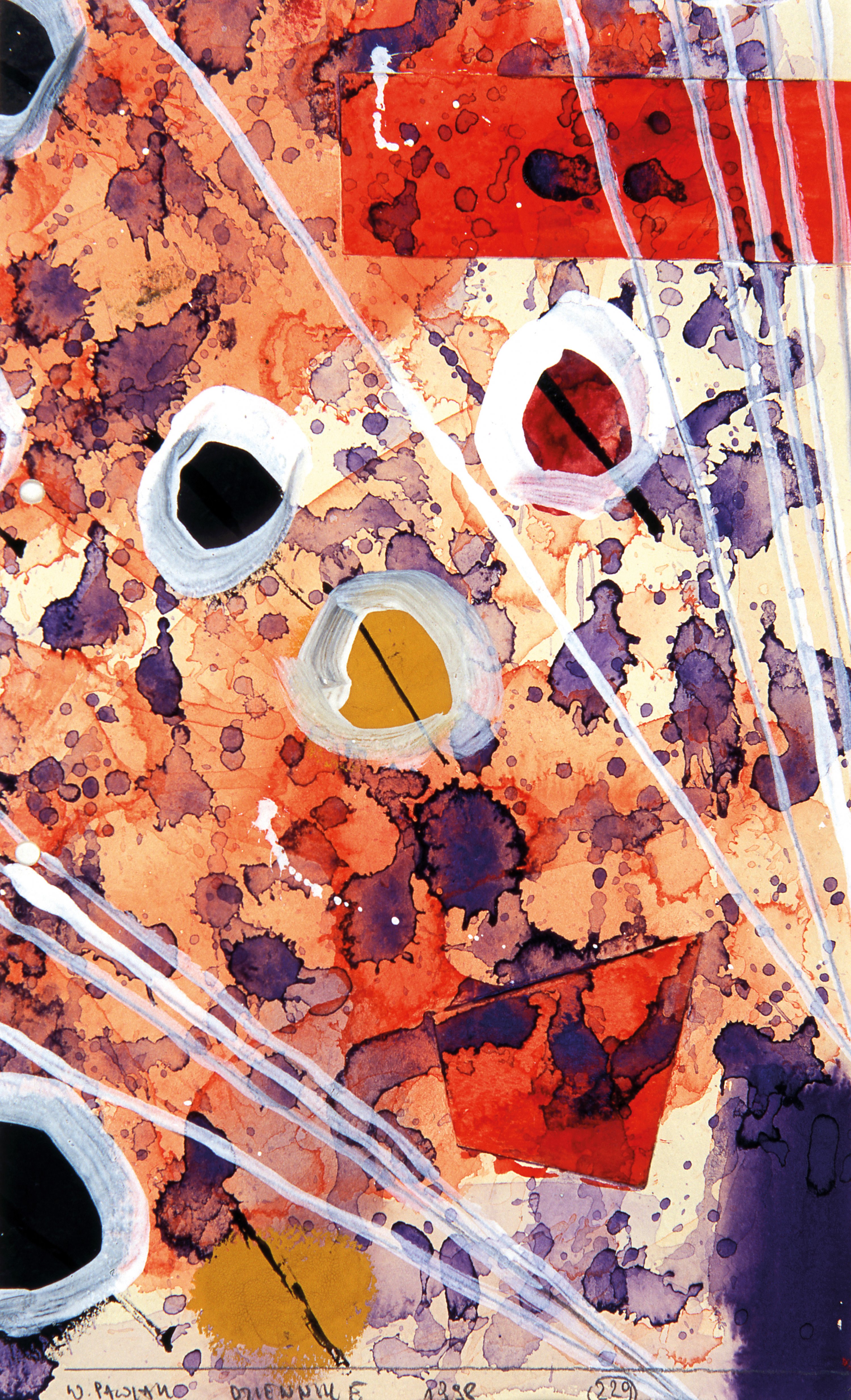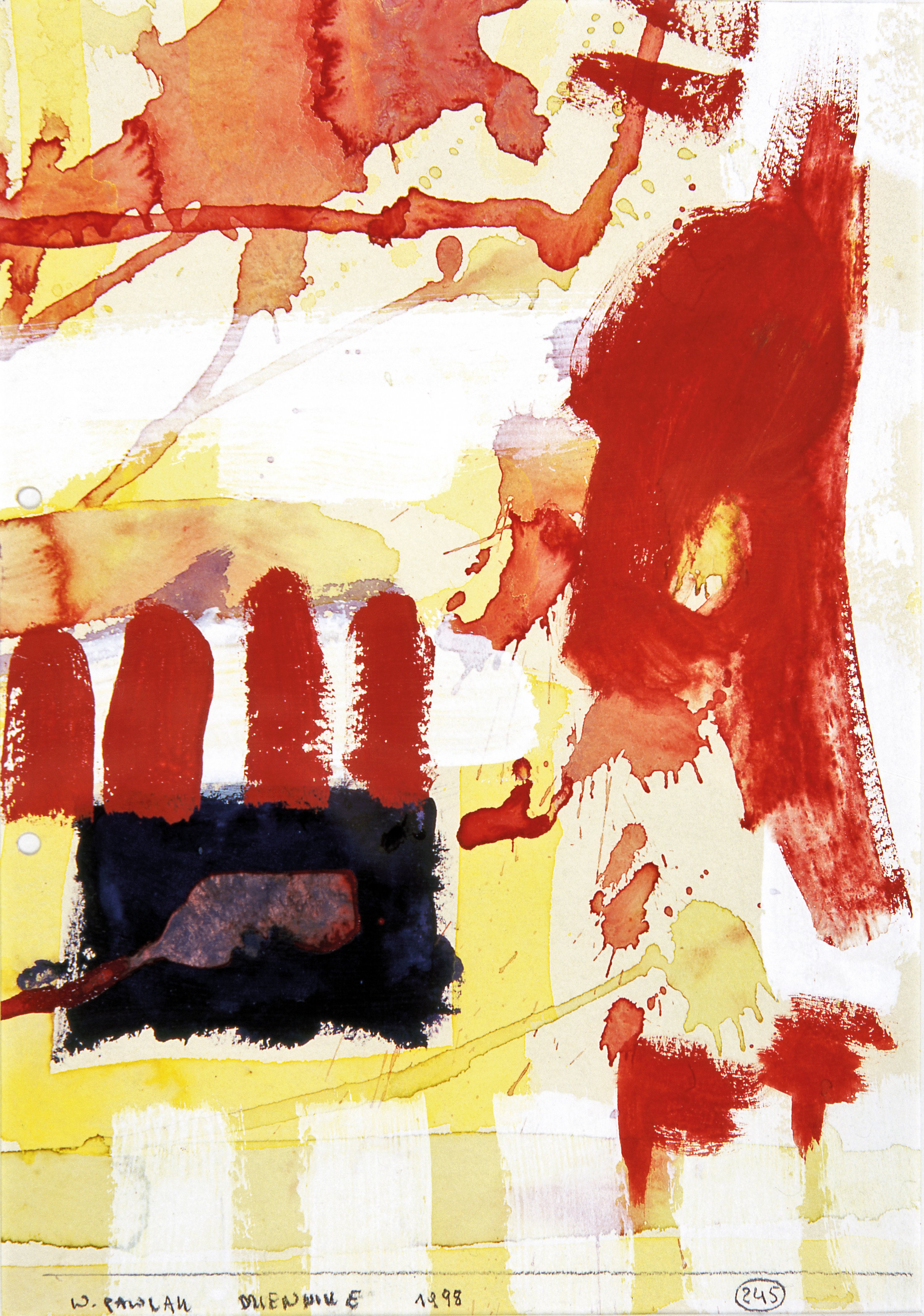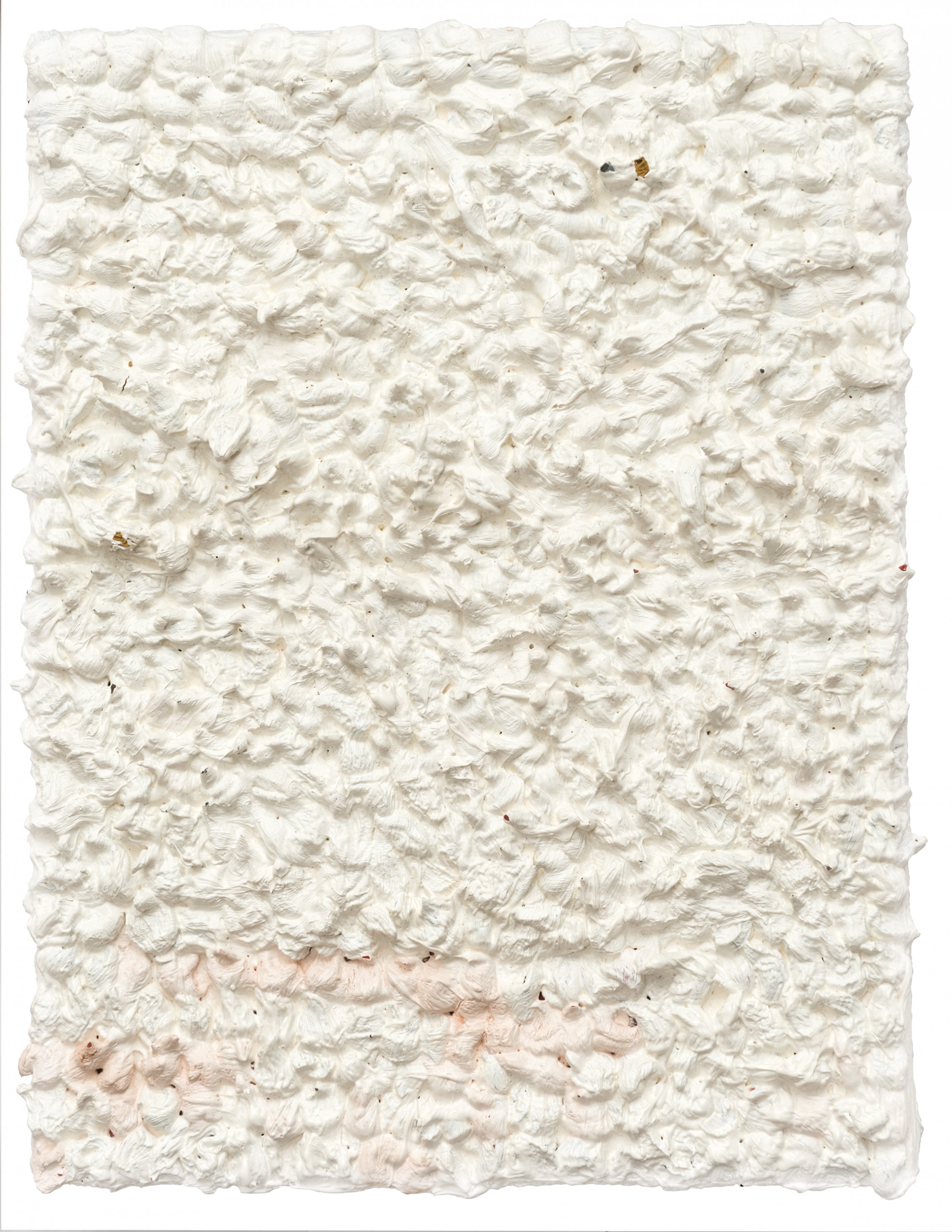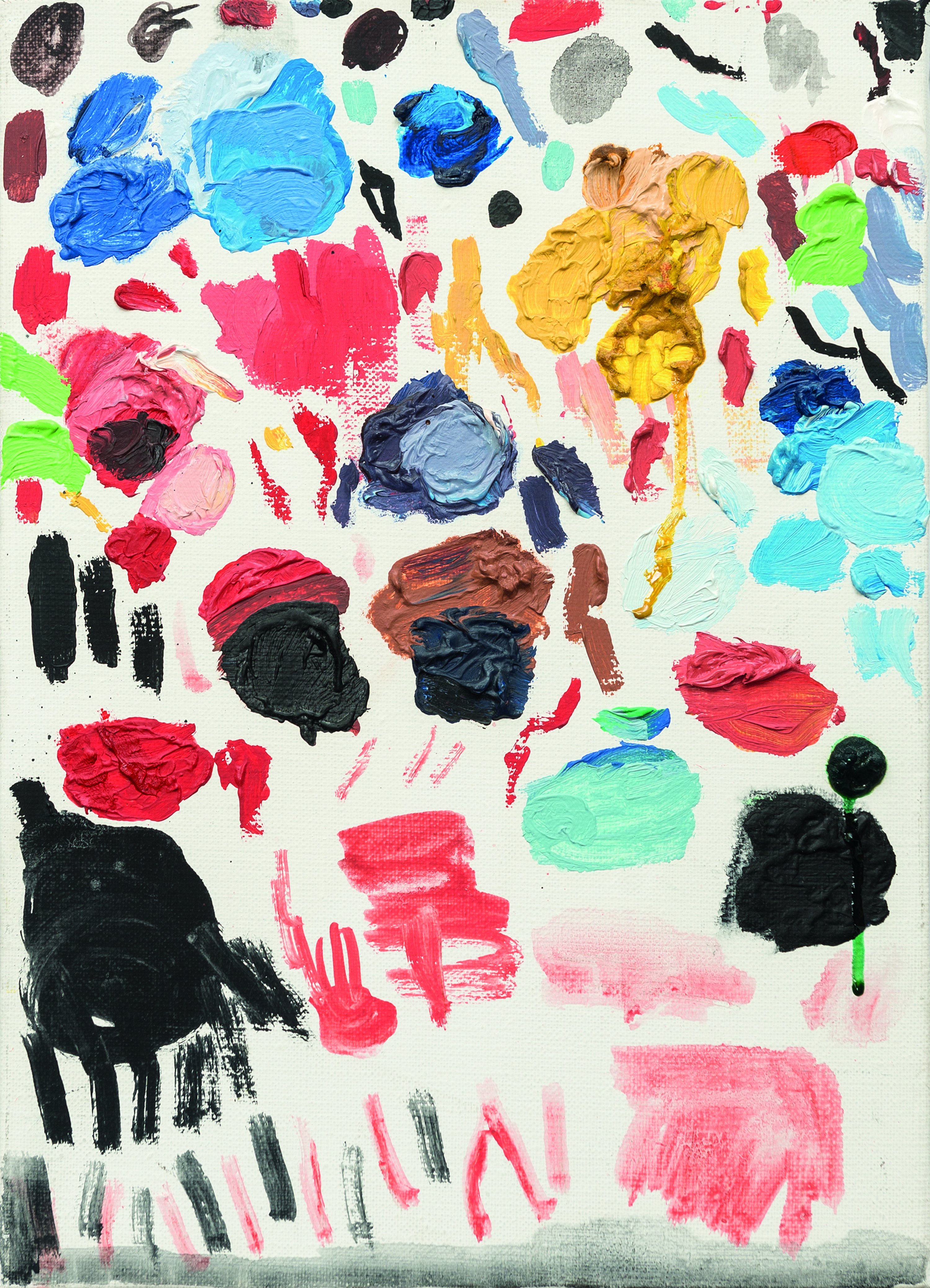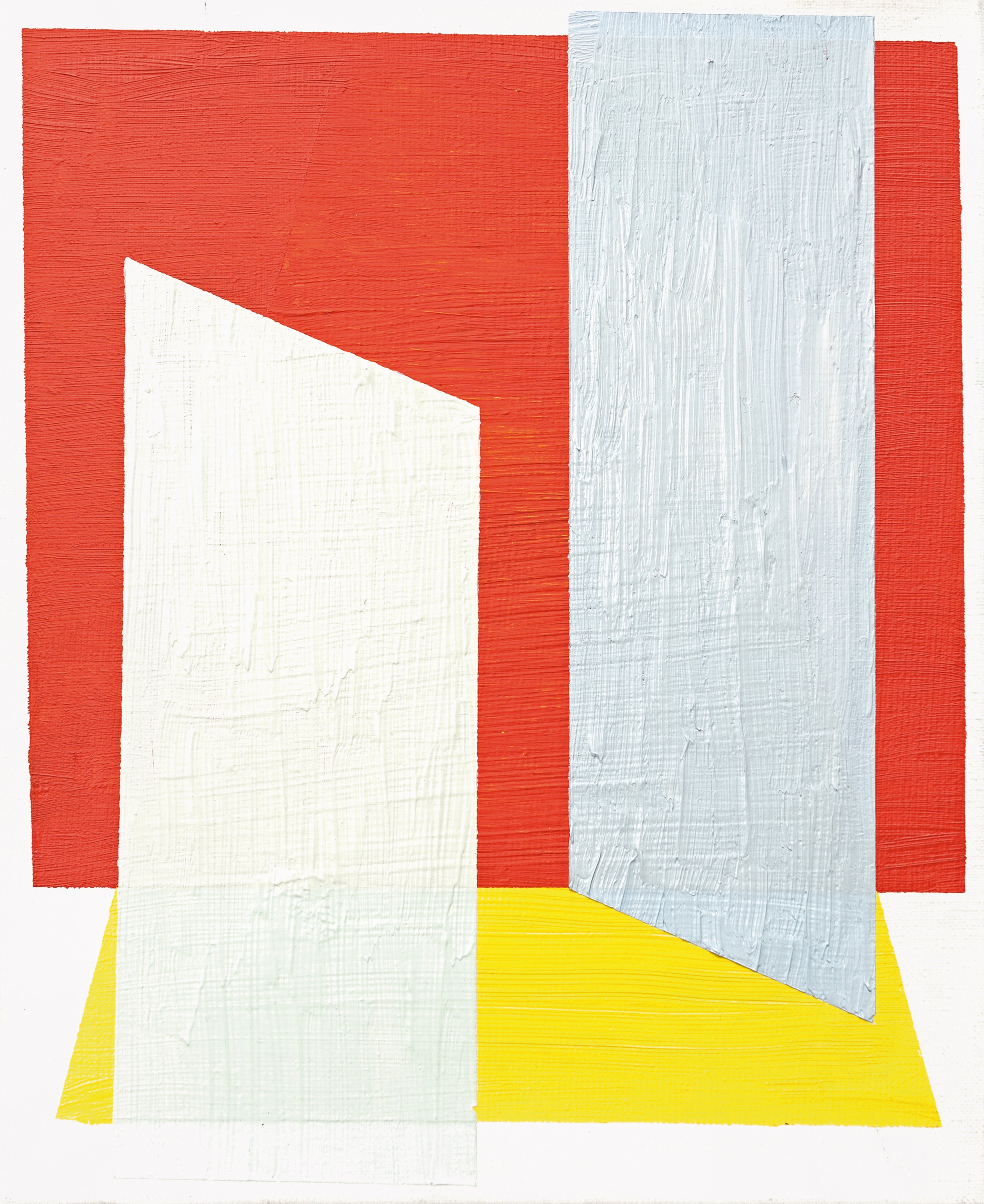Włodzimierz Pawlak
b. 1957, Korytów near Żyrardów
Painter, creator of objects, performance artist, teacher. He is a graduate of the Academy of Fine Arts in Warsaw and a co-founder of Gruppa, a famous art collective of the 1980s. This was also when he created a series of final diploma images he intended to paint over in the presence of the examination committee, in a gesture of solidarity with the authors of political slogans painted over on walls of buildings across the city. Pieces in the cycle are coated with a layer of masking paint covering the composition itself. Ever since, his work has included political and social motifs, as well as tropes of the role and agency of art. He was awarded the Grand Prix of the 22nd International Festival of Painting in Cagnes-sur-Mer for his Journals cycle in 1990, and the Jan Cybis Award in 2017. He lives and works in Korytów.
Journal E/105
FSP ING 0011
“Monday, me. Tuesday, me. Wednesday, me.” Włodzimierz Pawlak seems to be emulating the writer Witold Gombrowicz in his journal of paintings, a personal and colourful account of one day after another. Gombrowicz claimed that “a painter dissects the visible world into elements of colour and shape, arranging them in new and arbitrary compositions.” Pawlak’s artworks seem to contain references to such a perception of the creative process. His pure colours and expressive tonal compositions yield no separate narrative, their nature abstract and unfalteringly arbitrary.
Journal E/161
FSP ING 0012
“Monday, me. Tuesday, me. Wednesday, me.” Włodzimierz Pawlak seems to be emulating the writer Witold Gombrowicz in his journal of paintings, a personal and colourful account of one day after another. Gombrowicz claimed that “a painter dissects the visible world into elements of colour and shape, arranging them in new and arbitrary compositions.” Pawlak’s artworks seem to contain references to such a perception of the creative process. His pure colours and expressive tonal compositions yield no separate narrative, their nature abstract and unfalteringly arbitrary.
Journal E/203
FSP ING 0013
“Monday, me. Tuesday, me. Wednesday, me.” Włodzimierz Pawlak seems to be emulating the writer Witold Gombrowicz in his journal of paintings, a personal and colourful account of one day after another. Gombrowicz claimed that “a painter dissects the visible world into elements of colour and shape, arranging them in new and arbitrary compositions.” Pawlak’s artworks seem to contain references to such a perception of the creative process. His pure colours and expressive tonal compositions yield no separate narrative, their nature abstract and unfalteringly arbitrary.
Journal E/229
FSP ING 0014
“Monday, me. Tuesday, me. Wednesday, me.” Włodzimierz Pawlak seems to be emulating the writer Witold Gombrowicz in his journal of paintings, a personal and colourful account of one day after another. Gombrowicz claimed that “a painter dissects the visible world into elements of colour and shape, arranging them in new and arbitrary compositions.” Pawlak’s artworks seem to contain references to such a perception of the creative process. His pure colours and expressive tonal compositions yield no separate narrative, their nature abstract and unfalteringly arbitrary.
Journal E/245
FSP ING 0015
“Monday, me. Tuesday, me. Wednesday, me.” Włodzimierz Pawlak seems to be emulating the writer Witold Gombrowicz in his journal of paintings, a personal and colourful account of one day after another. Gombrowicz claimed that “a painter dissects the visible world into elements of colour and shape, arranging them in new and arbitrary compositions.” Pawlak’s artworks seem to contain references to such a perception of the creative process. His pure colours and expressive tonal compositions yield no separate narrative, their nature abstract and unfalteringly arbitrary.
Note on Art No. 19
FSP ING 0016
The series of Włodzimierz Pawlak’s Notes on Art are a painted treatise referencing essential works by avant-garde artists. Allusions to pieces by Kazimir Malevich, Władysław Strzemiński and Henryk Stażewski are clearly discernible. Pawlak replicates, synthesises and analyses artworks by classics the theory of image owes most to. The painter’s sketchbook becomes a field of exploration, experience, and research for the artist amassing knowledge of ways, techniques, and properties of representation there.
Note on Art
FSP ING 0017
The series of Włodzimierz Pawlak’s Notes on Art are a painted treatise referencing essential works by avant-garde artists. Allusions to pieces by Kazimir Malevich, Władysław Strzemiński and Henryk Stażewski are clearly discernible. Pawlak replicates, synthesises and analyses artworks by classics the theory of image owes most to. The painter’s sketchbook becomes a field of exploration, experience, and research for the artist amassing knowledge of ways, techniques, and properties of representation there.
Note on Art No. 47
FSP ING 0018
The series of Włodzimierz Pawlak’s Notes on Art are a painted treatise referencing essential works by avant-garde artists. Allusions to pieces by Kazimir Malevich, Władysław Strzemiński and Henryk Stażewski are clearly discernible. Pawlak replicates, synthesises and analyses artworks by classics the theory of image owes most to. The painter’s sketchbook becomes a field of exploration, experience, and research for the artist amassing knowledge of ways, techniques, and properties of representation there.
